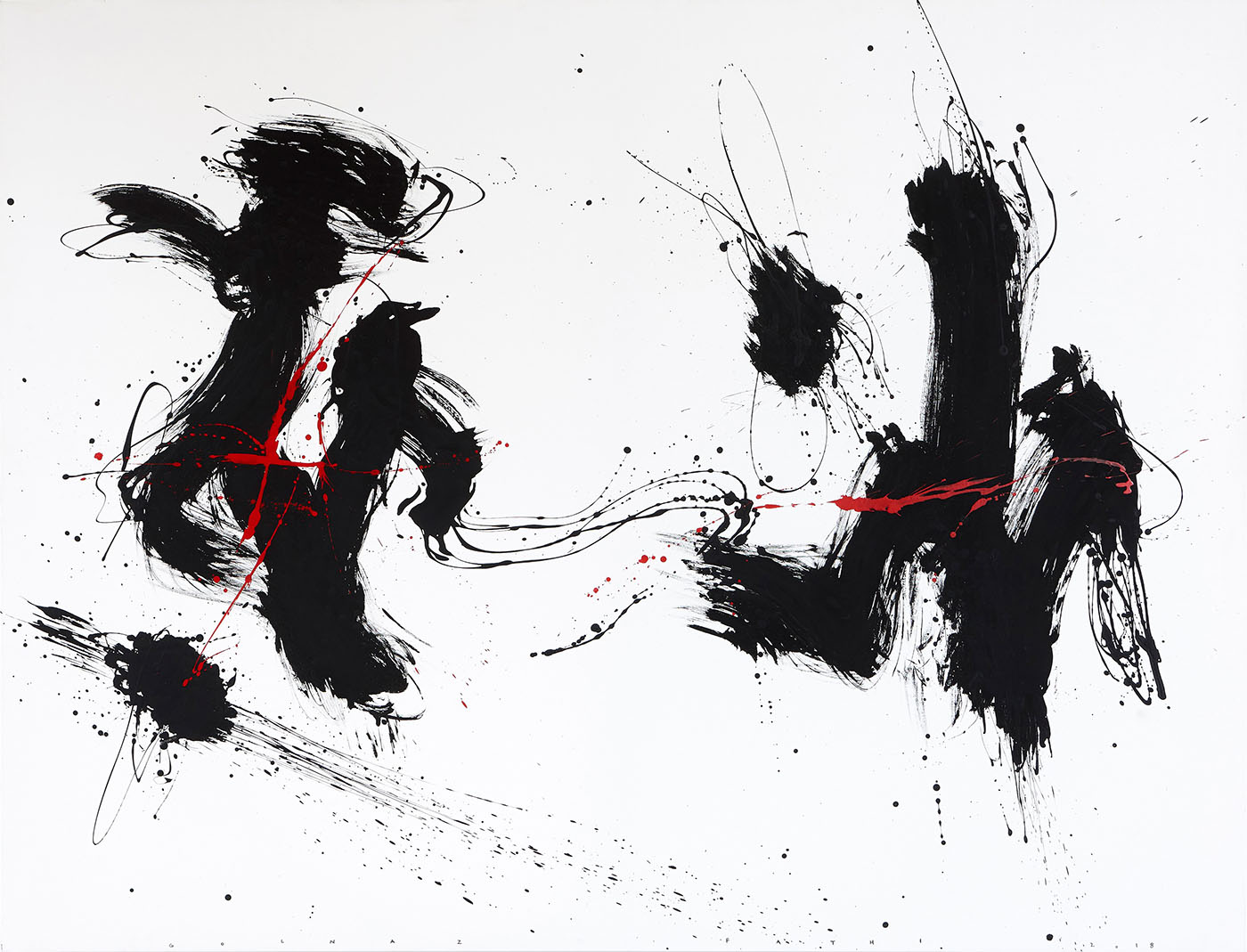A meditation on how war distorts the perception of time, transforming events and emotions into distant memories.
Alireza Iranmehr
Translated by Salar Abdoh
Ever since getting shot with a rubber bullet while sitting outside of a café less than two years earlier, during the women’s movement, she was afraid of the slightest loud noise and of any crowds. She’d always remind me that a uniformed assailant had aimed at her by mistake and this seemed to bother her more than the shooting itself. As if the injustice from that supposed blunder was worse than the pain she’d had to endure.
“My friend and I were sharing a carrot cake when he aimed his weapon at me from across the street.”
Not long afterwards she moved far from the city to a township near Karaj, about 40 km from Tehran. She needed to distance herself from all the chaos and noise, she said. We’d known each other for over ten years, though I’d seen her only a couple of times since her move. But now that war had broken out and nowhere was safe, I thought I owed it to both of us to check on her. That rubber bullet had broken something deep inside her. I reasoned she must be more vulnerable than anyone I knew right now.
So I took the metro, which was still working, all the way to the last stop in Karaj. From there to her house was a short distance. Everything seemed calm, the trees in full bloom. Then from far off a loud thud shook the ground. The waves from the blast felt like electricity in my bones. I searched for smoke but saw nothing.
When she opened the door I tried to appear confident and smiled. She seemed even sadder than before. But her voice took me by surprise. She sounded relaxed, “Did you hear the sound?”
The last time I’d seen her, the slightest loud bang could throw her into a panic. Now she was mentioning the blast as if it were some old tiresome thing she was already bored with. We drank tea in her small home and talked about what had been happening in the past few days.
War stretches time. The things that had happened just two days ago felt like distant memories. How many times had she told me that the “mistaken” bullet made her hate anyone in uniform, but also her parents — and not just her parents but everybody, all the people of Tehran. She simply hated everybody. She was always looking for a way out of the country back then. To emigrate. To just go. Escape and become a refugee somewhere. But today she mentioned none of these things. Instead she said, “Did you see how they hit the Radio & Television Building?” She choked for a moment and added, “Remember that year when you took me there to give a voice test for radio? If I’d passed the test back then, I’d probably still be there. Under the rubble.”
The voice test memory went back to exactly a decade ago when I first knew her. I was still a senior editor at the state Radio & Television in those days and worked radio. The mention of that time thickened the air between us. Nostalgia. And a wistfulness for the years that had seen us move into disheartened middle age — her hopes and dreams dashed with that unjust rubber bullet, and my own turned to smoke when the enemy reduced the place I once worked at to an ash heap only yesterday.
Now the blasts outside multiplied. We listened. She drank tea and zealously watched videos of the war on her cellphone. Something about this was disturbing me. I’d come a long way here, during bombardment, because I thought she would be in disarray. Instead she appeared quite calm, watching one video after another. When she looked up and saw the disbelief in my face, she smiled and waved her phone at me. The screen clearly showed Iranian missiles heading in the pitch dark of night toward their targets. She said, “I wanted to post these videos. But, you know, I might lose a few good friends that way.”
“You’re the last person in the world I expected this from.”
Her smile was bitter this time. These missiles that she’d shown me were being aimed by the same military that had shot her. I could see she knew exactly what I was thinking. She added, “I don’t want my friends to think I’ve suddenly changed gears. I don’t want them to think I support war all of a sudden. But … I mean, look at what’s being done to us. I’m worried. I’m worried for our country. For Iran. For Tehran.”
I nodded. The sincerity in her voice today sounded no different than two years ago when she would repeat how much she hated Tehran and all of its inhabitants.
I had to get back to the metro station before they shut it for the night. Or, worse, what if the metro line was pummeled with bombs? Earlier I’d mentioned to her that I’d come back to Tehran to get some sketches of what was happening in the capital. Now she said, “If you write about me, please don’t mention my name.”
“I won’t.”
When I came out of the house, the explosions felt bigger, closer. Like her, I too was worried about a lot of things. But this woman whom I had been worried about for so long was no longer one of my worries. She would be alright.




